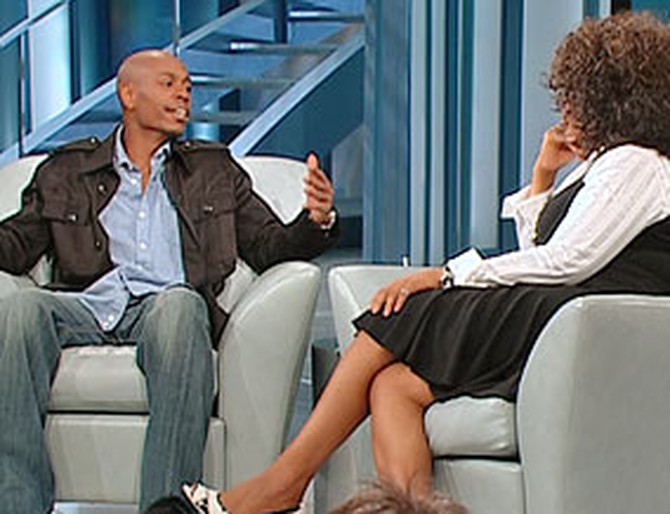Dave Chappelle’s departure from Hollywood and subsequent revelations have captured significant public interest, especially around his experiences with fame and his reflections on the industry’s darker aspects.
In interviews, Chappelle has frequently discussed the overwhelming pressures he faced as his popularity surged, notably during the peak of *The Chappelle Show*. The most notable incident, often cited as a turning point, involved his decision to walk away from a lucrative $50 million deal, an action that puzzled fans and colleagues alike.

One of the most publicized moments after his departure involved an interview with media mogul Oprah Winfrey. Many had expected this conversation to be supportive, offering Chappelle a chance to explain his reasons for leaving Hollywood behind.
However, some believe the tone of the interview leaned towards insinuating that Chappelle might have been “losing his mind.” Rather than simply listening, Oprah occasionally interjected with questions that suggested Chappelle may have been unstable or overly stressed, a narrative he felt was dismissive of his real concerns about the industry’s manipulative nature.

Chappelle has also discussed the challenges he faced with “handlers” or people who seemed to want control over his image and decisions. These handlers reportedly tried to persuade him to take medication, suggesting that his worries were irrational and that he was experiencing a breakdown.
But Chappelle insisted that he was clear-headed, if stressed, and that his concerns stemmed from genuine issues he had observed around him. He declined to take the medication, believing that it was part of an attempt to control or discredit him, much like the treatment other public figures have allegedly received.
Over the years, Chappelle has pointed to a troubling pattern in Hollywood, where black male actors are often expected to take on roles or engage in comedic scenes that strip them of their dignity. He recounts being pressured to wear a dress for a comedic bit in a movie, a trope he noticed was frequently applied to black men in the industry.

When he declined, arguing he could be funny without conforming to these stereotypes, the production team quickly adjusted the scene—proving that the demand was more about conformity than necessity.
Chappelle’s experiences are not unique. Other prominent comedians like Cat Williams, Ice Cube, and Mo’Nique have voiced similar frustrations with Hollywood’s practices. These artists have highlighted how often black actors are typecast or encouraged to take on degrading roles, which, in Chappelle’s eyes, is not only about creating laughter but also sends harmful messages that can perpetuate negative stereotypes.
The discussion around celebrities and mental health has intensified in recent years, with Chappelle’s experiences being paralleled to the struggles of other stars like Kanye West and Britney Spears.
These figures have reportedly undergone what is known as a “5150 hold,” a process in California that allows individuals to be detained and treated if they are deemed a risk to themselves. This law, Chappelle suggests, is sometimes wielded to sideline or control individuals who refuse to comply with industry expectations.
Chappelle’s revelations offer a candid look into his struggle with fame, control, and independence in Hollywood. By speaking out, he has sparked discussions on how the industry pressures artists to conform, sometimes to their detriment.
In his case, stepping away allowed him to reclaim control over his life, despite the public’s and the media’s perception of his decision. Today, Chappelle’s stance continues to challenge Hollywood norms, advocating for the respect and autonomy of artists within the industry.





